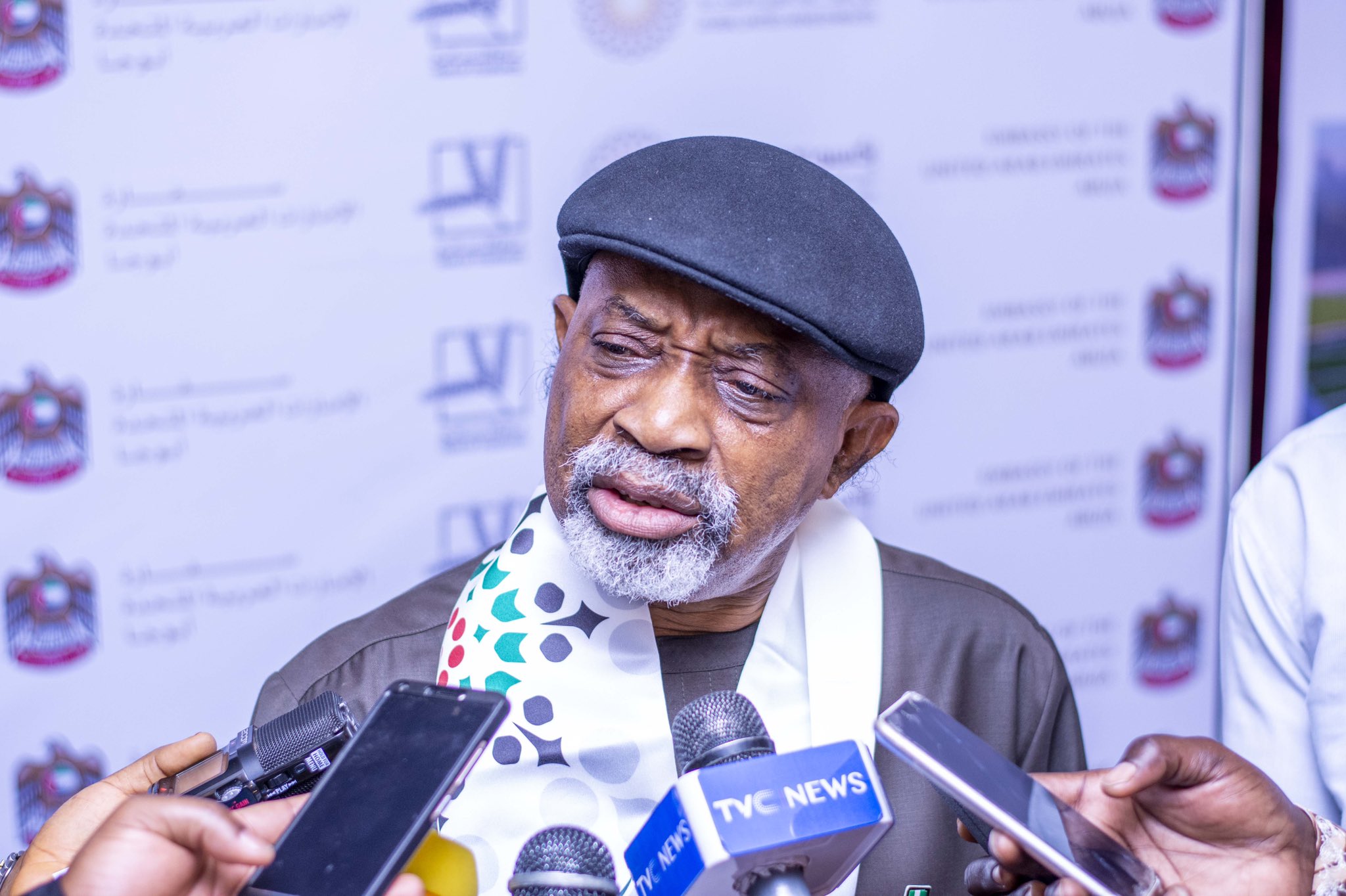Chris Ngige, the minister of Labour and Employment, has said he will not work for the emergence of any of the presidential candidates, in the February election.
Ngige who is a member of the All Progressives Congress, APC, said the four frontline presidential candidates are his friends, and that he will not campaign for or against any of them.
The Minister stated this on Wednesday, January 4, 2023, in his country home in Alor while speaking to journalists.
He urged Nigerians to rather look at the programmes of the candidates and determine which of them was better than the other, and vote right.
When prodded further on which of the candidates he thinks may win the election, Ngige said he would not like to predict, insisting Nigerians should be allowed to choose who they want to be their president.
Giving an account of his personal relationship with each of the frontline presidential candidates, Ngige said: “Malam Kwankwaso, is my friend, I know him too as deputy speaker when he was deputizing Agunwa Anekwe, one of our party’s strong men.
“Alhaji Atiku Abubakar, Vice President (former) the Federal Republic of Nigeria was the man who was in the helm of affairs when I was ‘kidnapped’- when I was shoved out of office.
“He was standing in for Mr President (Obasanjo), who was in Maputo, and he ordered the Inspector General of Police then, to reinstate me to office.
“I also worked with him in the economic team- National Economic Council as the Vice President. So, I know him, and he is a friend of mine, and we also formed AC together.
“Peter Obi, my brother, my successor, and my everything, I know him too and he is a friend. So, how do I campaign against any of them?
“Bola Ahmed Tinubu, my friend again – supportive. During trying times; we formed AC together. I became the known opposition Senator in the Eastern Region under the auspices and platform of the ACN. So, he is not somebody I don’t know.”
ASUU To Forfeit 8 Months Pensionable Period Over Recent Strike – Ngige
The controversies rocking the Nigerian universities system may be far from over as the Federal Government has indicated that members of the Academic Staff Union of Universities, ASUU, may also forfeit their eight months’ pension entitlements for the period the strike lasted.
Chris Ngige, the minister of Labour and Employment, gave this indication in Abuja on Tuesday, December 27, 2022, after a private meeting with President Muhammadu Buhari at the Presidential Villa, Abuja.
Ngige who described the year 2022 as a year of strikes, noted that members of ASUU triggered the fate which might befall them as a result of the “no work no pay policy” implemented while their strike lasted.
Recall that ASUU and Federal Government have been embroiled in a show of supremacy after the apex university union suspended its eight-month strike but failed to get its full month’s salary afterwards.
Lamenting the situation, Ngige said the government had to contend with industrial disputes from various unions in the public sector as against the private sector which was relatively peaceful all year round.
The Minister of Labour also hinted that government was handicapped by funding challenges, but noted that plans are on to shore up the salaries of workers in the academic system.
The minister said: “ASUU has not pronounced anything on their salary anymore because it’s one of the issues that was referred to the National Industrial Court for determination, whether a worker who is on strike should be paid in violation of Section 43 of the Trade Dispute Act which says when you go on strike, the consequences are these.
“Number one, you will not be paid, you will not be compensated for not going to work to enable your employer keep the industry or enterprise afloat. That money should not be given to you, and that compensation should not be given. It’s there in Section 43 (1). There is a second leg for Section 43, it also said that period you were on strike will not count for you as part of your pensionable period of work in your service.
“That aspect, government has not touched it, but the aspect of no-work-no-pay has been triggered off by that strike. So we are asking the court to look at it. So the matter is out of the hand of the Executive (that’s us) and out of the hand of the judiciary. ASUU has also put up a defence in court, asking the court, “yes we went on strike, but we did that for a reason.” So it’s now left for the court to look at it.”
Commenting on his mission to the presidential villa, Ngige said, he was there to brief Mr President on the labour sector for 2022.
“It’s a year we can call a year of industrial dispute starting from the February Academic Staff Union of the Universities, ASUU, strike which was joined by other sister unions in the university system and even the people in the research institutes and thereafter pressed from various unions, including the Medical Doctors Association and the youth wing of the National Association of Resident Doctors.
“JOHESU which is the Joint Health Sector Union were all asking for a wage increase, and asking for a wage increase can also be understandable because of what inflation had done to the economy and the attendance cost of living for people who have to be workers in the public sector.
“In the private sector, the private sector employers have managed their affairs better, maybe, because their finances and its management is within their very audit and they could control it, they could do collective bargaining very easily with their workers. The banking sector, food and beverages, and finance, insurance, everywhere; there is calm there. We didn’t have the desired calmness on the government’s side because of the government’s finances,“ Ngige told State House correspondents.
Source: Daily Post







